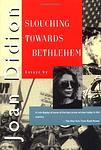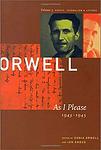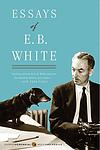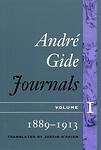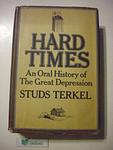The Greatest "Essays" Books of All Time
Click to learn how this list is calculated.
This list represents a comprehensive and trusted collection of the greatest books. Developed through a specialized algorithm, it brings together 284 'best of' book lists to form a definitive guide to the world's most acclaimed books. For those interested in how these books are chosen, additional details can be found on the rankings page.
Genres
Essays are a category of books that typically consist of a collection of written works by a single author or multiple authors. These works are typically non-fiction and explore a wide range of topics, from personal experiences and opinions to social and political issues. Essays are often characterized by their informal tone, personal voice, and the author's unique perspective on the subject matter. They can be thought-provoking, informative, and entertaining, and are often used as a means of exploring complex ideas and issues in a more accessible and engaging way.
Countries
Date Range
Reading Statistics
Click the button below to see how many of these books you've read!
Download
If you're interested in downloading this list as a CSV file for use in a spreadsheet application, you can easily do so by clicking the button below. Please note that to ensure a manageable file size and faster download, the CSV will include details for only the first 500 books.
Download-
1. Essays by Michel de Montaigne
This collection of essays explores a wide range of topics such as solitude, cannibals, the power of the imagination, the education of children, and the nature of friendship. The author employs a unique and personal approach to philosophy, using anecdotes and personal reflections to illustrate his points. The essays provide a profound insight into human nature and condition, and are considered a significant contribution to both literature and philosophy.
-
2. Pensées by Blaise Pascal
"Pensées" is a collection of philosophical and theological thoughts and ideas by a renowned French mathematician and physicist. The book delves into various aspects of human existence, exploring the nature of faith, reason, and the human condition. It also presents arguments for the existence of God, including the famous wager argument. The book is known for its profound insights into the human experience and its exploration of the complexities of belief and doubt.
-
3. Poems of W. H. Auden by W. H. Auden
This book is a collection of poems by a renowned 20th-century poet. The poems cover a wide range of themes, including love, politics, religion, and the human condition. The poet's unique style combines traditional forms with modernist free verse and his work is known for its technical achievement, emotional depth, and engagement with moral and political issues. The collection provides an overview of the poet's career, showcasing his development and evolution as a writer.
-
4. Slouching Towards Bethlehem by Joan Didion
This book is a collection of essays that capture the essence of the 1960s in California. It portrays a society in the midst of social and cultural upheaval, as traditional norms are challenged by the counterculture movement. The author explores various themes including morality, self-respect, and the nature of good and evil, while providing a vivid picture of the era through her insightful and incisive observations.
-
5. The Myth of Sisyphus by Albert Camus
This book is a philosophical essay that explores the concept of absurdity, and how individuals should respond to life's inherent meaninglessness. It posits that life is essentially absurd due to the conflict between our desire for understanding and the chaotic, indifferent universe. The author argues that the only proper response to this absurdity is to live life to its fullest, embracing and rebelling against the absurdity, rather than resorting to suicide or turning to religion or philosophy for false comfort. The story of Sisyphus, condemned to eternally roll a boulder up a hill only for it to roll back down, is used as a metaphor for the human condition.
-
6. Against Interpretation by Susan Sontag
This book is a collection of essays that challenge the traditional methods of interpretation and criticism of art and culture. The author argues that in our attempt to interpret and find deeper meaning, we often overlook the sensory experience of the work itself. The book encourages readers to experience art in its raw form, focusing on the form, color, and sounds, rather than trying to decipher a hidden meaning. It is a call for a new, more direct approach to consuming art and culture.
-
7. The Essential Writings of Ralph Waldo Emerson by Ralph Waldo Emerson
This book is a comprehensive collection of works by a renowned American philosopher and poet. It includes his most influential essays, lectures, and poetry, providing readers with a deep insight into his thoughts on nature, self-reliance, love, friendship, freedom, and the importance of intellectual independence. The book serves as a guide to the author's transcendental philosophy and his belief in individualism, nonconformity, and the inherent goodness of man and nature.
-
8. Letters to a Young Poet by Rainer Maria Rilke
This book is a collection of 10 letters written by a renowned poet to a young aspiring poet, offering advice and guidance on matters of life, love, and the pursuit of poetry. The author encourages the young poet to look inward for inspiration and to embrace solitude as a means of self-discovery. He also emphasizes the importance of patience, personal growth, and the necessity of experiencing life's hardships to truly understand and depict the human condition in poetry.
-
9. Collected Essays of George Orwell by George Orwell
This book is a compilation of essays by a renowned author, known for his sharp wit and critical eye. It covers a wide range of topics, from politics and language to literature and culture. The author's insightful and often provocative viewpoints provide a unique perspective on the world, challenging readers to question their own beliefs and assumptions. His straightforward writing style and keen observations make these essays as relevant today as when they were first published.
-
10. Symposium by Plato
In "Symposium", a group of notable men including philosophers, playwrights, and politicians gather at a banquet and decide to each give a speech in praise of the god of love. Each speech presents a different perspective on love, ranging from the purely physical to the spiritual. The dialogue culminates with the speech of Socrates, who presents a philosophical view of love as a means of ascending to contemplation of the divine.
-
11. Notes of a Native Son by James Baldwin
This book is a collection of essays that vividly capture the author's life in Harlem, his travels in Europe, and his views on everything from the sweet music of black church revivals to the biting prejudice of the 'then' contemporary world. It's an exploration of racial, sexual, and class distinctions in both Western societies and the American society. The author's reflections on his experiences as a black man in white America are profoundly insightful and continue to resonate today.
-
12. Civil Disobedience by Henry David Thoreau
The book is a seminal work on the philosophy of non-violent resistance, advocating for individual freedom and the refusal to obey unjust laws. The author argues that individuals have a duty to prioritize their conscience over the dictates of laws and that governments are inherently prone to corruption and should not command absolute allegiance from their citizens. The book has greatly influenced many nonviolent resistance movements around the world, including those led by Gandhi and Martin Luther King Jr.
-
13. Orthodoxy by G. K. Chesterton
"Orthodoxy" is a classic work of Christian apologetics that explores and defends the beliefs that are central to Christian faith. The author presents his personal journey towards faith, arguing for the reasonableness of Christianity. He challenges popular assumptions of his time about religion, faith, and the world while presenting a compelling case for orthodox Christian belief, using both logic and wit. The book combines personal anecdotes, historical critique, and philosophical discourse to present a deeply intellectual and sincere exploration of Christianity.
-
14. Mythologies by Roland Barthes
This book is a collection of essays that explore the layers of cultural and societal meanings that are imbued in everyday objects, activities, and phenomena. The author decodes the symbols and signs embedded in things as varied as wrestling, soap detergents, toys, and even the face of Greta Garbo. The book is a pioneering exploration of semiotics, the study of signs and symbols, and it challenges readers to question and understand the cultural connotations and ideologies that are presented as natural or given in our everyday lives.
-
15. Selected Essays of T. S. Eliot by T. S. Eliot
This book is a collection of critical and reflective essays by a renowned poet and literary critic. The author explores a variety of topics including literature, culture, society, and religion. The essays offer an insightful and thought-provoking commentary on the works of other writers, as well as the author's own views on literary theory and criticism. The collection serves as an important resource for understanding the author's intellectual development and his influence on 20th century literature and criticism.
-
16. The Liberal Imagination by Lionel Trilling
"The Liberal Imagination" is a collection of essays that scrutinize and challenge the ideas, politics, and cultural norms of liberal society. The author argues that liberalism often simplifies complex issues and overlooks the inherent contradictions and conflicts in human life. Using literature as a tool, he delves into the nuances of these issues and encourages readers to engage in critical thinking and self-examination. The book is a profound exploration of the strengths and weaknesses of liberal thought and its impact on society.
-
17. Tristes Tropiques by Claude Lévi-Strauss
"Tristes Tropiques" is a blend of autobiography, travel literature, and anthropology by a renowned scholar. The book is a recounting of the author's travels and anthropological work, primarily in Brazil, in the 1930s. It provides a critical and philosophical reflection on his experiences and observations, offering insights into indigenous tribes like the Nambikwara and Tupi-Kawahib, and exploring themes of cultural change, the nature of anthropology, and the author's own disillusionment with Western civilization.
-
18. Essays of E. B. White by E. B. White
This book is a collection of essays written by a renowned American writer, offering a wide range of topics including nature, politics, literature, and personal experiences. The author's distinct style of writing, characterized by wit, humor, and profound insight, is evident throughout the book. The essays serve as a reflection of the author's thoughts and observations about life, society, and the world, providing readers with an intimate look into his mind and perspective.
-
19. Kafka's Other Trial by Elias Canetti
This book is a detailed examination and interpretation of the correspondence between a renowned author and his fiancée, Felice Bauer. The author uses these letters to analyze the writer's psyche, his relationships, and his work. The book provides a unique insight into the author's life and the influence of his engagement on his writing, particularly his novel "The Trial". The author's struggle between his commitment to writing and his relationship with Felice forms the central theme of the book.
-
20. A Supposedly Fun Thing I'll Never Do Again by David Foster Wallace
"A Supposedly Fun Thing I'll Never Do Again" is a collection of seven essays that blends humor, insight, and philosophical pondering. The author explores a wide range of topics, from the impact of television on contemporary literature to the despair of the American cruise industry, and even the nature of David Lynch's films. The book is a brilliant showcase of the author's unique ability to see the extraordinary in the ordinary, all while using his sharp wit and expansive intellect to explore the complexities of modern life.
-
21. The Fire Next Time by James Baldwin
This book is a powerful exploration of race relations in America in the early 1960s. The author presents his experiences and observations in the form of two essays. The first is a letter to his 14-year-old nephew, discussing the role of race in American history. The second essay takes a broader look at the civil rights movement and the author's own experiences with religion and identity. Throughout, the author presents a passionate plea for the recognition of the humanity and dignity of all people, regardless of race.
-
22. Journals: 1889-1913 by André Gide
"Journals: 1889-1913" is a compilation of personal entries by a prominent French author, written over a span of 24 years. The journals offer a deep insight into the author's thoughts, emotions, and experiences, providing a unique window into his personal life and his creative process. The entries also reflect on the social, political, and cultural events of the time, making the journals not only a personal memoir but also a historical document of late 19th and early 20th century France.
-
23. The Narrow Road to the Deep North by Matsuo Bashō
"The Narrow Road to the Deep North" is a travelogue that depicts the author's journey through the remote and desolate northern regions of Japan. The narrative combines prose and haiku poetry to capture the beauty and spirituality of nature, as well as the author's introspective thoughts and philosophical insights. The journey is not just physical but also spiritual, as the author seeks to understand his place in the world and the essence of the human condition.
-
24. Hard Times: An Oral History of the Great Depression by Studs Terkel
This book is a compelling oral history of the Great Depression, featuring a collection of interviews from a diverse range of individuals who lived through the era. The interviewees include both the ordinary people and famous figures of the time, from businessmen and politicians to artists and criminals. The book provides a vivid, first-hand account of the economic hardship, social changes, and emotional struggles experienced by people during the 1930s, offering a unique perspective on this significant period in American history.
-
25. Me Talk Pretty One Day by David Sedaris
This book is a collection of humorous, autobiographical essays that explore the author's experiences and observations in his life. The first part of the book focuses on his upbringing in North Carolina, his Greek heritage, his relationship with his eccentric family, and his early jobs. The second part of the book details his move to Normandy, France, his struggle to learn the French language, and his observations of French culture. The author's self-deprecating humor and sharp wit provide a satirical view of his life's journey.
Reading Statistics
Click the button below to see how many of these books you've read!
Download
If you're interested in downloading this list as a CSV file for use in a spreadsheet application, you can easily do so by clicking the button below. Please note that to ensure a manageable file size and faster download, the CSV will include details for only the first 500 books.
Download


